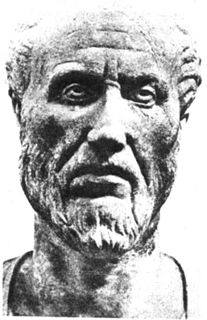 W
WAncient Greek philosophy arose in the 6th century BC, at a time when the ancient inhabitants of ancient Greece were struggling to repel devastating invasions from the east. Greek philosophy continued throughout the Hellenistic period and the period in which Greece and most Greek-inhabited lands were part of the Roman Empire. Philosophy was used to make sense out of the world way using reason. It dealt with a wide variety of subjects, including astronomy, epistemology, mathematics, political philosophy, ethics, metaphysics, ontology, logic, biology, rhetoric and aesthetics.
 W
WAristotelianism is a tradition of philosophy that takes its defining inspiration from the work of Aristotle. Aristotle was a prolific writer whose works cover many subjects including physics, biology, metaphysics, logic, ethics, aesthetics, poetry, theatre, music, rhetoric, psychology, linguistics, economics, politics, and government. Any school of thought that takes one of Aristotle's distinctive positions as its starting point can be considered "Aristotelian" in the widest sense. This means that different Aristotelian theories may not have much in common as far as their actual content is concerned besides their shared reference to Aristotle.
 W
WCritical thinking is the analysis of facts to form a judgment. The subject is complex, and several different definitions exist, which generally include the rational, skeptical, unbiased analysis, or evaluation of factual evidence. Critical thinking is self-directed, self-disciplined, self-monitored, and self-corrective thinking. It presupposes assent to rigorous standards of excellence and mindful command of their use. It entails effective communication and problem-solving abilities as well as a commitment to overcome native egocentrism and sociocentrism.
 W
WIn philosophy, ideas are usually taken as mental representational images of some object. Ideas can also be abstract concepts that do not present as mental images. Many philosophers have considered ideas to be a fundamental ontological category of being. The capacity to create and understand the meaning of ideas is considered to be an essential and defining feature of human beings. In a popular sense, an idea arises in a reflexive, spontaneous manner, even without thinking or serious reflection, for example, when we talk about the idea of a person or a place. A new or an original idea can often lead to innovation.
 W
WIn the study of the human mind, the term Intellect refers to and identifies the ability of the mind to reach correct conclusions about what is true and what is false, and about how to solve problems. The term intellect derives from the Ancient Greek philosophy term nous, which translates to the Latin intellectus and into the French and English languages as intelligence. Discussion of the intellect is in two areas of knowledge, wherein the terms intellect and intelligence are related terms.In philosophy, especially in classical and medieval philosophy the intellect (nous) is an important subject connected to the question: How do humans know things? Especially during late antiquity and the Middle Ages, the intellect was proposed as a concept that could reconcile philosophical and scientific understandings of Nature, with monotheistic religious understandings, by making the intellect a link between each human soul, and the divine intellect of the cosmos. During the Latin Middle Ages the distinction developed whereby the term intelligence referred to the incorporeal beings that governed the celestial sphere; see: passive intellect and active intellect. In modern psychology and in neuroscience, the terms intelligence and intellect describe mental abilities that allow people to understand; the distinction is that intellect relates to facts, whereas intelligence relates to feelings.
 W
WNeoplatonism is a strand of Platonic philosophy that emerged in the second century AD against the background of Hellenistic philosophy and religion. The term does not encapsulate a set of ideas as much as it encapsulates a chain of thinkers which began with Ammonius Saccas and his student Plotinus and which stretches to the 5th century AD. Even though neoplatonism primarily circumscribes the thinkers who are now labeled Neoplatonists and not their ideas, there are some ideas that are common to neoplatonic systems; for example, the monistic idea that all of reality can be derived from a single principle, "the One".
 W
WNous, sometimes equated to intellect or intelligence, is a term from classical philosophy for the faculty of the human mind necessary for understanding what is true or real. English words such as "understanding" are sometimes used, but three commonly used philosophical terms come directly from classical languages: νοῦς or νόος, intellēctus and intellegentia. To describe the activity of this faculty, the word "intellection" is sometimes used in philosophical contexts, as well as the Greek words noēsis and noeîn. This activity is understood in a similar way to the modern concept of intuition.